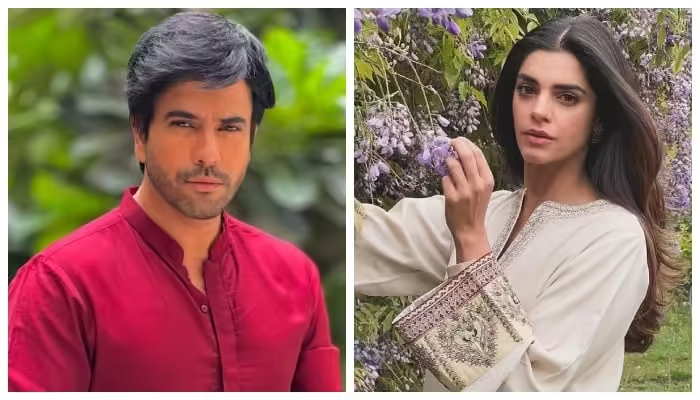Famed Pakistani actor and singer Junaid Khan recently opened up about a particularly difficult experience during his acting career that involved slapping his co-star, Sanam Saeed, during the filming of a drama. This revelation came during his appearance on a podcast hosted by actor and host Ahmed Ali Butt, where Junaid candidly discussed his career and personal life.
The Incident: A Scene from 2012
Junaid Khan, who has made a name for himself in both the music and television industries, shared the details of the incident that took place during the shooting of the drama Mata-e-Jaan in 2012. The actor, who was still relatively new to the acting scene at the time, recalled being asked to perform a scene where his character had to slap Sanam Saeed’s character.
In the interview, Junaid explained that the scene required him to slap Sanam to add a sense of realism to the drama. The scene was directed by the renowned Mehreen Jabbar, known for her dedication to authenticity in her projects. However, Junaid was initially hesitant, expressing his discomfort with the idea of actually hitting his co-star. “I was shocked and told Mehreen that I didn’t want to do it,” he said. But Mehreen insisted, stating that the scene needed to look as real as possible.
Sanam Saeed, who is also known for her professionalism and commitment to her craft, supported the director’s decision and encouraged Junaid to go through with it. This added pressure made Junaid agree, albeit reluctantly.
The Filming Experience
Junaid first attempted the scene with a light slap, hoping it would suffice. However, Mehreen was not satisfied with the result, as the action didn’t appear genuine on camera. Determined to get the perfect shot, the director asked for a retake, this time asking Junaid to slap Sanam with more force.
Junaid recalled the tension leading up to the moment, saying that he was extremely uncomfortable with the idea but felt compelled to follow the director’s instructions. “Sanam also insisted, so I agreed,” Junaid shared during the podcast. When the cameras rolled again, Junaid delivered a harder slap, which, as he recalled, visibly hurt Sanam. The actor admitted that this moment has stayed with him ever since, describing it as the worst scene of his career. He felt deeply apologetic for causing his co-star pain, even though it was in the context of acting.
Reflecting on the Experience
After completing the scene, Junaid immediately apologized to Sanam for the incident. He admitted that despite the pressures of the job, the experience left him feeling uneasy and regretful. “It was clear that Sanam was hurt, and I felt terrible about it,” he said. The experience was a learning moment for Junaid, shaping his approach to similar scenes in the future.
In reflecting on the incident, Junaid shared that it has significantly influenced how he handles physical scenes in his acting roles. “After that, whenever I get a scene that requires a slap or any kind of physical confrontation, I refuse to do it for real,” he explained. Instead, Junaid prefers to rely on camera angles and sound effects to simulate such actions without causing actual harm. “I pass my hand in the air and work with the director to ensure the scene looks convincing without needing to hurt anyone.”
A Lesson in Ethics and Professionalism
Junaid Khan’s experience highlights a crucial aspect of acting that is often overlooked—the ethical considerations of performing intense, physical scenes. While realism is a vital element of storytelling, it’s equally important to ensure the safety and comfort of the actors involved. Junaid’s story is a reminder of the delicate balance actors must maintain between delivering compelling performances and respecting their co-stars’ boundaries.
For Junaid Khan, the incident on the set of Mata-e-Jaan remains a defining moment in his career, not just because of the discomfort it caused him, but also because of the lessons it taught him about professionalism and compassion in the world of acting. His openness in discussing this experience offers valuable insights for both aspiring and established actors on the importance of communication, consent, and mutual respect in the entertainment industry.



